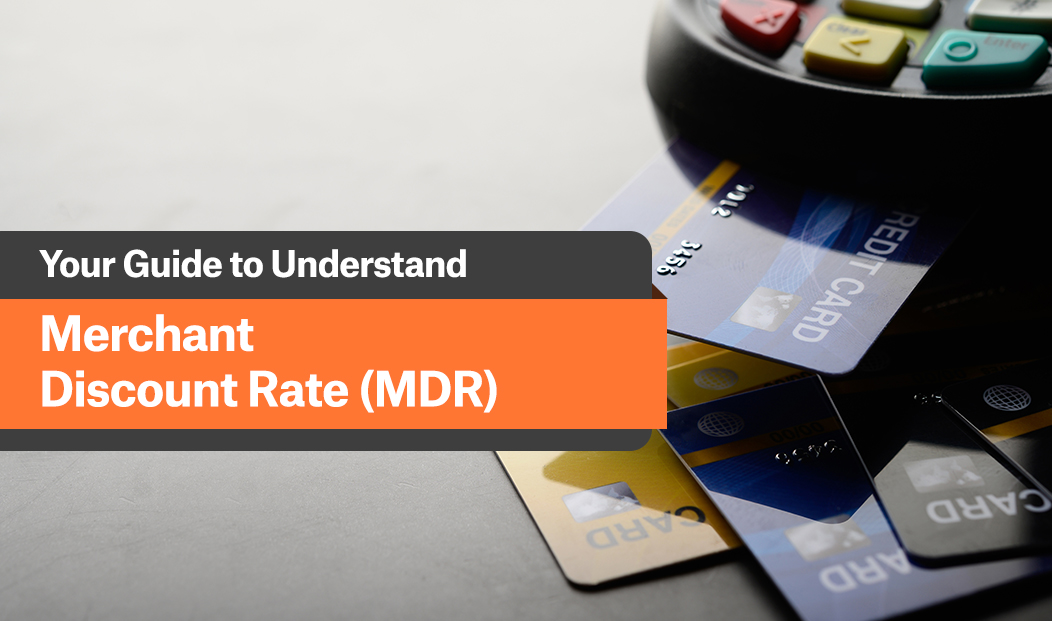Chaitali Bhatia | Director – Marketing Ezetap Mobile Solutions Pvt. Ltd.
Sep 26, 2022

Debit and credit cards were introduced in India during the 1980s. From then onwards the use of these cards has only been increasing. As more and more banks provided debit cards to their customers, the infrastructure such as ATMs and card swipe machines started gaining momentum too. It also pushed the merchants to transform their payment processes as per the customers’ demands.
Business owners and small retailers required the right technology that could help them accept card payments. That is where banks and fintech companies extended their services to merchants and offered them point-of-sale (POS) machines. These systems helped retailers to easily accept card payments.
The swipe machine providers, whether a bank or a fintech company, incurred costs in the process of offering payment infrastructure to merchants. These costs were passed down as charges to merchants and are known as the Merchant Discount Rate (MDR). It is charged by banks or swipe machine providers to retailers. Retailers are not allowed to charge this cost to customers, and they have to give it from their pockets.
MDR is levied on debit/credit card payments accepted by the merchants from their customers. On every transaction, a certain percentage of MDR is charged as a payment processing fee. Today, most banks and POS vendors have a well-established system to service online and offline merchants. When a merchant adopts a POS machine he agrees to a certain range of percentage of MDR to be paid on each transaction. It is imperative that a merchant considers the MDR when calculating the overall business costs.
For example, a customer purchases a product or service from a merchant and makes payment via a credit card. The merchant uses a swipe machine to accept the card payment and the MDR is charged to the merchant. The MDR collected here is split between three parties:
The bank that issued the card to the customer
Payment network of the customer’s card (Visa/Mastercard, etc.)
The bank/company that provided the POS terminal to the merchant
This is because MDR is essential to sustain the infrastructure and services provided by these banks/POS providers to all retailers and merchants.
Now that we know the role of MDR and how it works, let us understand how to calculate it. Usually, retailers are charged between 1% and 3% MDR on every payment they accept via debit/credit cards. The merchant discount rate differs for every transaction depending on the value of the average transaction, the type of card used by a customer, and the level of business. The MDR can be higher for e-commerce businesses due to the additional costs of better security. Therefore, local merchants and e-commerce merchants will have different service-level agreements and fees.
Currently in India, an MDR of 0.9% is capped for transactions made via debit cards, except for Rupay, which involves zero MDR. As of now, no MDR is charged on UPI payments. However, for wallet and PPI instruments the MDR ranges from 1.25% to 2.5 %, and as of now, it is not regulated.

The commerce industry needs efficient infrastructure to process the ever-increasing volume of digital payments. Financial technology has significantly helped businesses and consumers to make processes faster, easier, and more secure. The payment processing devices are at the forefront of this development and the
relationship between merchants and payment solution providers. As a retailer, you have to choose a payment aggregator/partner that can help you improve customers’ experience and scale your business.
We, at Ezetap, are determined to empower retailers by offering them the latest payment acceptance technology. Our range includes affordable POS terminals that are easy to use and can be adopted by medium and small-sized businesses. Consult the team of experts at Ezetap to understand what type of solution your business needs. Our customer support team helps to integrate the chosen payment solution into your business.
You may contact us at 1800-313-141516 and our team will be happy to assist you in choosing the right payment acceptance solution for your business.
Chaitali Bhatia | Director – Marketing Ezetap Mobile Solutions Pvt. Ltd.
Bhaskar Chatterjee | Head of Products
T. Venkata Chalapathi | Principal Architect, Ezetap Mobile Solutions Pvt. Ltd.
Get in Touch